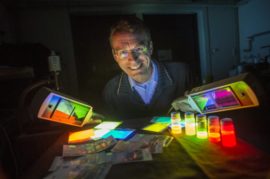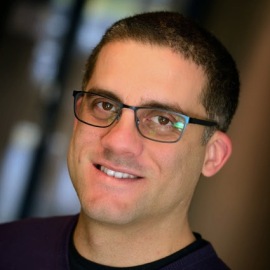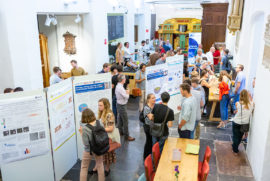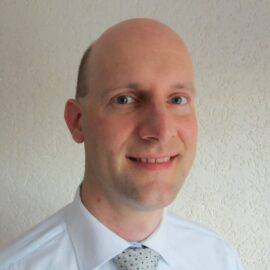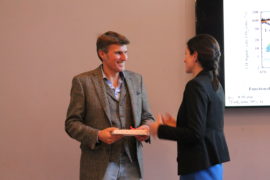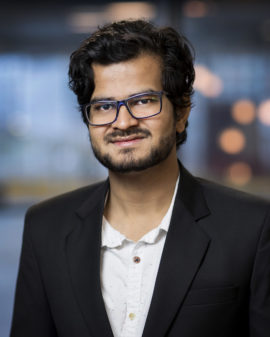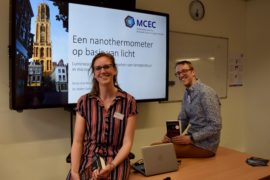David Fernández Rivas has been awarded the ERC Starting Grant. The MCEC member from University of Twente received the maximum amount of € 1.5 million for his project focused on the development of needle-free injections, or: ‘bubble gun’, as the technology is based on ‘pushing’ liquid into the skin using laser-made bubbles.
David Fernández is a great advocate of societal benefit of scientific research. He’s ensuring its deployment into society on three topics: cavitation, renewable energy, and process intensification through microfluidics. Since 2014 he has focused on biomedical projects.
What is it exactly that fascinates you about the biomedical implementation?
It’s all about the challenge. First you have the technical factor: A lot of researchers before me have tried to study this difficult topic. The big question is, can I make it work? Then there’s the human factor. Successful implementation will only be possible if we can deal with all the variables of the human body. In contradiction to the work we do in a lab, the circumstances can change instantly and unpredictably.
A €1.5 million ERC Starting grant, what will you do with it?
Such a grant can be spend in many ways. Depending on the type of research you do, your location, whether or not you do a lot of experimental work. You have to factor in the salary of people who are working on the project, the equipment and the experiments.
For this specific project we will be looking to work with three PhD students and one PD. The aim is to assemble a multi-disciplinary team that covers the fields of micro-fluidics, physics and bio-engineering. For me, it is a great opportunity to learn to work on a longer running project. Now I can apply all the experiences that I’ve gained during my time as PD and assistant professor with other professors.
What would be your biggest take-away for any aspiring MCEC PD or PhD that may think of taking a next step in academia?
My advice would be: Do not stop when you’re afraid that your research idea is not good enough. With time your idea will become better. How? By pitching your idea to many colleagues. Your ideas will improve, your research will become more focused. Peer reviewers will get familiar with your work . It’s not a miracle. Of course, luck plays a part. But it’s also about putting in the hard work and continuously improving your ideas.
Read more about the ‘Bubble Gun’-project, the ERC Starting Grant and see the vacancies of the project.
–
6 September 2019
